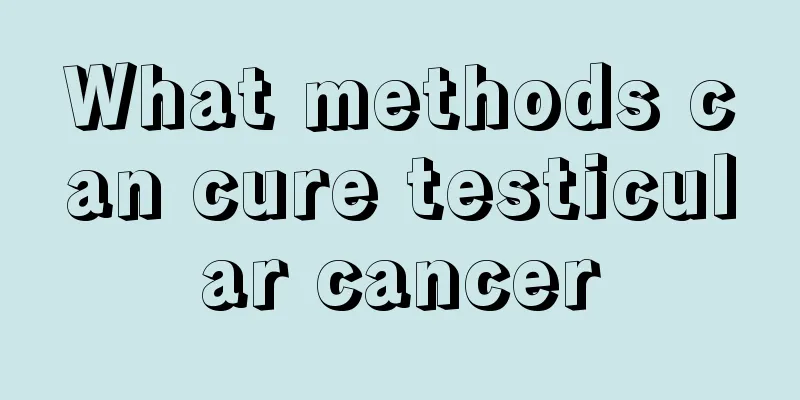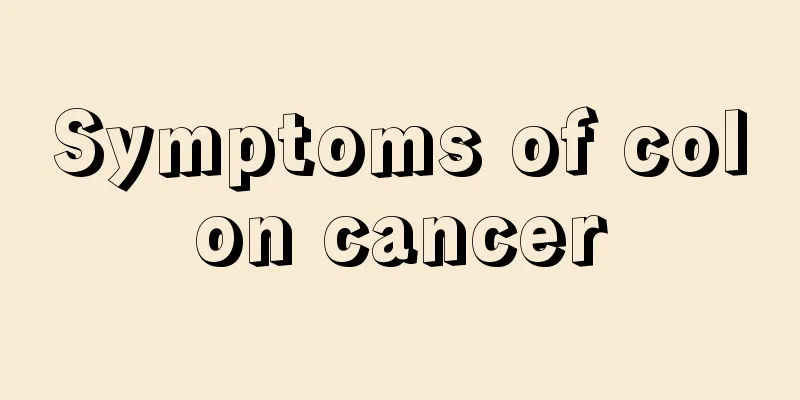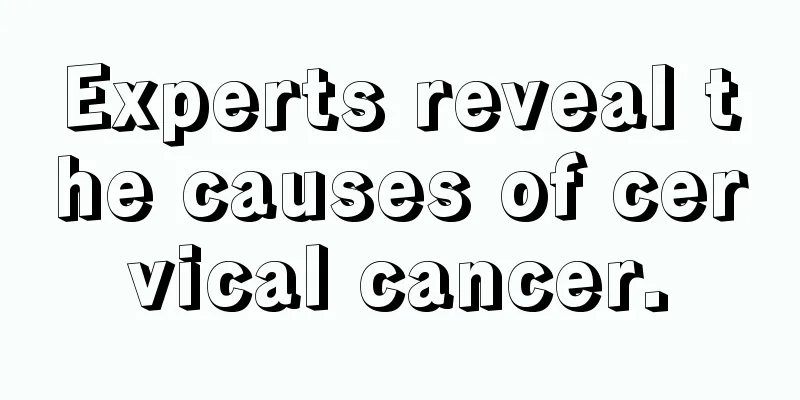What methods can cure testicular cancer

|
Testicular cancer is a disease that occurs in the testicular tissue of men. Although it is rare, it is very harmful. There are many causes of the disease, and it is also related to diet and daily habits. Testicular cancer has a huge impact on male fertility. Timely treatment of testicular cancer is the key. So what methods can be used to treat testicular cancer? Here are a few methods for treating testicular cancer for reference by patients, friends and their families. The main treatments for testicular cancer are: 1. Surgical treatment Because the pathology of testicular tumors is extremely complex, there is no consensus on the treatment method. However, no matter which type of testicular tumor, orchiectomy should be performed first, and further treatment will be determined based on the results of pathological examination. 1. Orchiectomy 2. Retroperitoneal lymph node dissection 2. Chemotherapy The complete remission rate of DDP-based combined chemotherapy for disseminated testicular germ cell cancer is 80%. Incomplete remission patients can receive rescue chemotherapy, and 30% of patients can still achieve complete remission; 90% of complete remission patients can survive long-term without cancer. If the serum marker level rises again or the residual mass increases, rescue chemotherapy will be performed. Rescue chemotherapy usually uses DDP + a combination of drugs that have not been used in the first chemotherapy. VIP and VAB-6 are currently commonly used regimens. 3. Radiation therapy Radiotherapy alone can be used for clinical stage I and IIa (maximum diameter of retroperitoneal metastatic lymph nodes less than 2 cm), and combined radiotherapy and surgery can be used for stage IIb. Radiotherapy has similar efficacy to retroperitoneal lymph node dissection, but has less damage to sexual function. Combined treatment with radiotherapy and surgery may cause more damage to sexual function, so currently chemotherapy and surgery are more advocated, and combined treatment with radiotherapy and surgery is not advocated. No mediastinal and supraclavicular preventive irradiation is performed for clinical stage II. |
<<: Introduction to the treatment of testicular cancer
>>: How to treat testicular cancer
Recommend
Is stage 2 thyroid cancer dangerous? Can it be cured?
Stage II thyroid cancer is generally more serious...
Hemangioma on the ear?
Babies are at high risk of hemangioma, which usua...
Reasons why the pregnancy line becomes lighter during pregnancy
After a woman becomes pregnant, her body will exp...
Can sunscreen ingredients cause skin cancer
Sunscreen can be divided into chemical sunscreen,...
How to quickly heal frozen hands
If your hands are frozen, you must find a way to ...
The early symptoms of gastric perforation are actually these
Gastric perforation is a stomach disease that peo...
The significance of exercise after breast cancer surgery
The incidence of breast cancer in countries aroun...
The scalp is red, swollen and itchy with small red bumps
Most of the time, the human scalp is covered with...
There is a slight smell under the armpits
Most people will find that their armpits have a s...
Afro female short hair
Nowadays, many young people will work hard on the...
What are the blackheads on the tip of the nose?
Most people have blackheads on their faces, but s...
Can ceramics be heated in a microwave?
Now people's living standards are getting hig...
Will my stomach hurt if I have gastric bleeding?
Nowadays, most people always have stomach pain an...
Will unmarried women get cervical cancer?
According to traditional concepts, "unmarried...
Foods that people with thyroid cancer should avoid
Thyroid cancer is a malignant tumor originating f...









